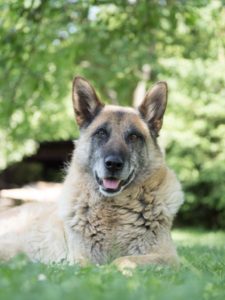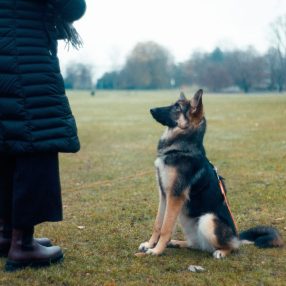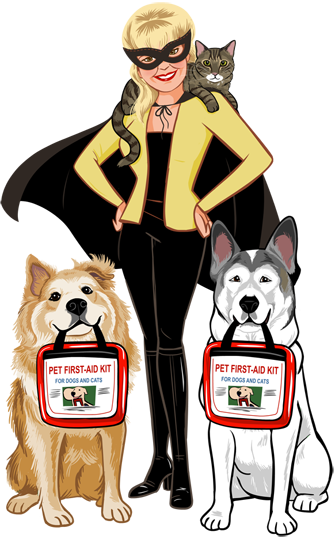
As your beloved canine companion enters his or her golden years, their needs change, just like humans. Aging dogs require specialized care to ensure they continue to live a comfortable, healthy, and happy life. Here, we’ll discuss how to best look after old dogs, emphasizing the importance of pet insurance and offering compassionate advice to help you navigate this special time in your pet’s life.
Adjusting Your Dog’s Diet and Exercise Routine
As dogs age, their metabolism slows down, making it essential to adjust their diet to prevent obesity and support their changing nutritional needs. Consult your veterinarian about the appropriate diet for your senior dog, including high-quality senior dog food, supplements, and portion sizes. Hydration is crucial for your dog’s overall health, so ensure they always have access to fresh, clean water. Don’t automatically assume though, that your senior needs less calories. Many remain quite active, so discuss with your veterinarian.
Additionally, regular exercise is vital for maintaining your dog’s physical and mental well-being. While your dog may not have the same stamina as before, gentle, low-impact activities like leisurely walks or swimming can help them stay active and engaged. Keep an eye on your dog’s comfort levels during exercise and adjust accordingly.
Prioritizing Preventative Healthcare
Preventative healthcare is crucial for detecting and managing age-related health issues, such as arthritis, diabetes, or heart problems. Schedule regular veterinary check-ups, ideally every six months, to monitor your dog’s health closely. Remember, our dog’s age at a faster rate than we do, so six months could be equal to 3 – 4 years for us. Your veterinarian may recommend blood tests, dental cleanings, or other age-appropriate screenings to ensure your dog’s well-being.
Pet insurance can play a significant role in providing the necessary care for your aging dog. As your dog grows older, the likelihood of encountering health issues increases, potentially leading to costly treatments. By investing in pet insurance for your dog, you can alleviate some of the financial burden and ensure your dog receives the best possible care. When choosing pet insurance, consider factors such as coverage, deductibles, and reimbursement levels. Research various plans and consult with your veterinarian to determine the most suitable option for your pet’s needs.
Creating a Comfortable Environment
As your dog ages, his or her comfort needs may change, making it essential to adapt their living environment accordingly. Consider the following steps to create a cozy, safe space for your senior dog:
● Provide an orthopedic or memory foam bed to support your dog’s joints and alleviate any discomfort from arthritis or other joint issues.
● Ensure your home is easily accessible, with non-slip flooring, ramps, or steps for dogs with mobility challenges.
● Keep their sleeping area warm and draft-free, as older dogs may struggle to regulate their body temperature.
● Maintain a consistent routine, as sudden changes can be stressful for senior dogs.
Focusing on Mental Stimulation
Mental stimulation is crucial for maintaining your dog’s cognitive function as they age. Engage your dog in interactive games, like puzzle toys or scent-based activities, to keep his mind sharp. Regular socialization with other dogs and people can also be beneficial, as long as your dog is comfortable and enjoys the interaction.
Managing Age-Related Behavioral Changes
As dogs age, they may experience behavioral changes, such as increased anxiety or disorientation. It’s essential to be patient and understanding during this time, as your dog may be struggling with the natural aging process. Consult with your veterinarian or a professional dog trainer if you notice any significant behavioral changes to ensure your dog receives the support they need.
Embracing the Power of Love and Companionship
Finally, and maybe most importantly of all, your love and companionship are invaluable to your dog’s overall well-being. Spend quality time with your senior dog, offering gentle affection and reassurance. Be present and attentive to their needs, providing comfort and understanding as they navigate this stage of life. The bond between you and your dog is unique and powerful, and your support is crucial in helping them age gracefully.
Caring for an aging dog is a beautiful, rewarding journey that requires patience, understanding, and compassion. By prioritizing preventative healthcare, investing in pet insurance, and adapting to your dog’s changing physical, mental, and emotional needs, you can ensure their golden years are filled with comfort, happiness, and love. Remember, your senior dog has been by your side through various stages of your life, and now it’s your turn to be there for them as they enter their twilight years. So, cherish every moment you have together and provide the care and support your loyal companion deserves.










